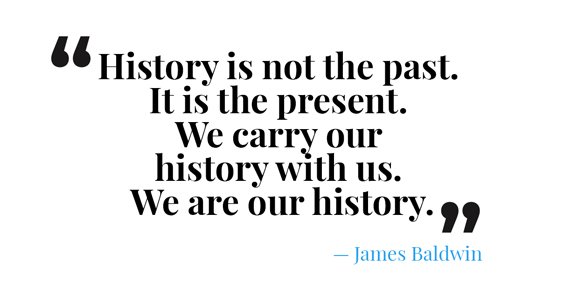This Juneteenth — Teach The Truth
Written by Dr. Sarah Johnson
Yesterday was Juneteenth, a holiday started in Galveston Texas, commemorating the freedom of 250,000 enslaved Black people in Texas in 1865, and now a federally recognized holiday, celebrating the emancipation of the enslaved in the United States.
I’m fortunate to live in an area that celebrates Juneteenth with music and cookouts — fortunate because this gives me an easy opportunity as a parent to continue to teach my seven-year-old son about the history of Juneteenth and how that history is connected to what we experience as a nation to this day.
There are some places in our nation, however, that have passed legislation banning "so-called critical race theory teachings," and in these places, teachers report feeling afraid to teach about Juneteenth or make connections between the racist history of our nation to current events, like the recent and horrific shooting of 10 Black people in Buffalo by a racist teenager.
It really should not be radical to #TeachTheTruth but we live in a nation where it is. At Teaching Lab, we proudly stand with the educators — formal ones like teachers, and informal ones, like parents, grandparents, and caregivers — who refuse to stop teaching the truth even when it puts them at risk in their local communities.
As a white leader in education, it is especially important for me to speak the truth and teach the truth because white people will not face as much risk when they speak up. It is also a moral imperative for me as I try to raise a better white son.
Understanding our full nation’s history is important for everyone’s liberation, including the liberation of white minds. Racism makes people, and white people, in particular, less critical and able to think clearly — see the laws referenced above — laws that will prevent young people from understanding a complete history of their nation and prevent them from reading, writing and thinking critically about why we are who we are.
That kind of oppression, the kind that understands knowledge is power, and then systematically limits access to knowledge, warps the minds of all people. It's like what Tim Wise wrote here last year:
“Although the importance of celebrating Juneteenth might be evident to Black folks, it should be every bit as important to those of us who are White because the liberation of Black people is the only hope for our own. The literal chains that bound Black bodies always, metaphorically, bound us as well: to a mindset of human inequality, the perpetuation of unspeakable horror, and the numbing of one’s conscience necessary to make that horror acceptable.”
New to Juneteenth? See a full history here from the Juneteenth Legacy Project, a non-profit based in Galveston.
Need resources to use with your students or children? Check these out:
Learning for Justice’s Focus on Equity for Juneteenth and Beyond includes articles and resources for educators
PBS’ Lesson Plan: History of Juneteenth and why it's now a national holiday
Yesterday, my seven-year-old and I watched the videos embedded within the last link above and we also read the ABCs of Black History, and if you haven’t seen this book, check it out–it is beautifully written and designed and it opens with the James Baldwin quote included above.
Of course teaching my son about the full history of our nation is just the tip of the iceberg of the work we need to do. In our Teaching Lab newsletter in 2020, we shared this list of things that Wayside Youth published, called 10 Things We Want White People to Do to Celebrate Juneteenth, and today I’m embracing #10:
“We want white people to hold other white people accountable not on social media, instead with measured voices that call folks in to look and wrestle – to change. We are interested in courageous conversations, in hearing folks out and in allowing themselves to feel terrible and to let that feeling be a crucible for change.”
Thank you for continuing to pursue the truth, teach young people everything, and #TeachTheTruth.
Note: this piece was edited for clarity.
Dr. Sarah Johnson is the CEO of Teaching Lab and was a high school science teacher and founder of a social justice student leadership program in Washington, DC and Oakland, CA. She has a Doctorate in Education Leadership from the Harvard Graduate School of Education, an M.A.T. from American University, and graduated summa cum laude with a B.S. in Neuroscience from Emory University.




